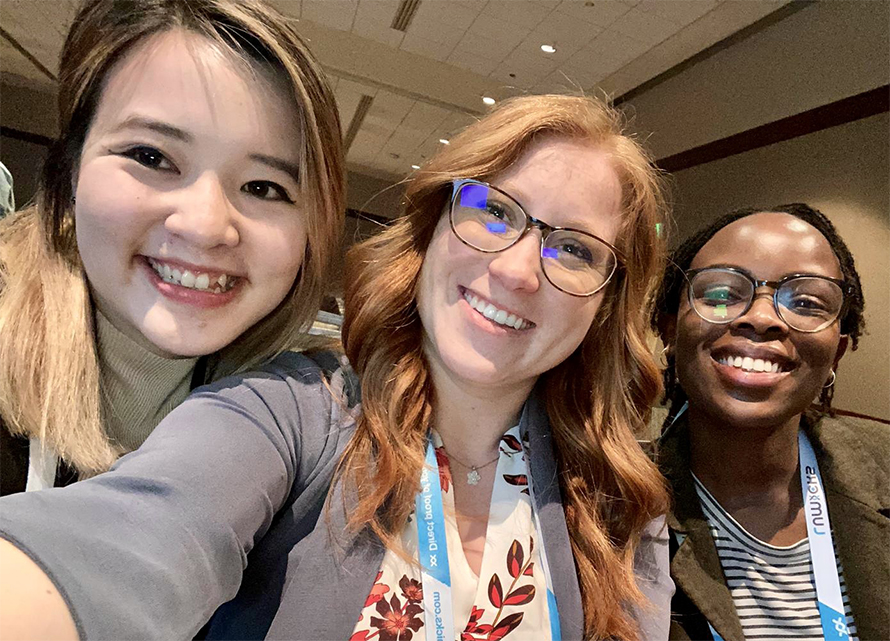Survival tools for a neurodivergent brain in academia
Working in academia is hard, and being neurodivergent makes it harder. Here are a few tools that have helped me as a Ph.D. student with attention-deficit/hyperactivity disorder, or ADHD.
Notes, notes, everywhere

Stick notes on your walls, laptop, desk, bench, biosafety hood and any other equipment you’re going to use for the next week — although I’d try to avoid putting sticky notes on your lab mates. If you can afford to splurge on multiple blocks of sticky notes in multiple colors, I highly encourage color-coding your notes. You can do it based on day, experiment, importance or anything, really. Whatever floats your note.
When it comes to your lab notebook, it’s better to have multiple copies of the same entry than zero. This allows you to check everything two, three, four times (and a half, because that final time, you got distracted and thought about cats). Your principal investigator may never understand why it took you more than five minutes to “consult your notes,” but that’s much less important than actually messing up and not knowing that you ever did. Just make sure to check that you’re using the right version of a protocol before you start an experiment and/or send it to a collaborator.
Make sure that you have a “meta” note so you can remember, or at least try to trace, when and where you made each lab notebook entry (e.g., on paper, your phone or the computer), what’s it about, where else you may find it and whether you’ve actually used it for something. The last two may not seem that important, but they help give you some peace of mind, kind of like an “it’s ok if you accidentally lost or deleted it” flag — because trust me, it happens all the time.
Calendars, alarms and reminders
Yes, you’ll need all of them, each in physical and digital forms. For a physical wall calendar, I personally recommend Space Cats. With pictures of cats (photoshopped into foods, floating in space!), you’re just that much more likely to look at your calendar, update it and check it to make sure you don’t walk into a seminar 45 minutes late, which, to be fair, is still better than completely forgetting to show up.
Don’t forget to check that all your digital alarms are off before you go to seminars. If you forgot and your alarm accidentally rang during a talk, do not panic and hit snooze because it’ll go off again in nine minutes. If you do hit snooze, absolutely do not panic and hit snooze again. This is all, of course, totally hypothetical and has never happened to anyone, ever. Especially not me.
Finally, friends and colleagues
For me, it’s preferable and logical to rely on friends who don’t also have, or think they may have, ADHD. Don’t get me wrong, they’re great. Just like you’re great. It just might be helpful not to be stuck in a constant loop of reminding each other of things, when at least half of those reminders are actually meant for yourself. Are you confused? Me too.
Final note: Stop asking Google if neurodivergent people can get Ph.D.s. We’ve got this!

Enjoy reading ASBMB Today?
Become a member to receive the print edition four times a year and the digital edition monthly.
Learn moreGet the latest from ASBMB Today
Enter your email address, and we’ll send you a weekly email with recent articles, interviews and more.
Latest in People
People highlights or most popular articles

Sketching, scribbling and scicomm
Graduate student Ari Paiz describes how her love of science and art blend to make her an effective science communicator.

Embrace your neurodivergence and flourish in college
This guide offers practical advice on setting yourself up for success — learn how to leverage campus resources, work with professors and embrace your strengths.

Quieting the static: Building inclusive STEM classrooms
Christin Monroe, an assistant professor of chemistry at Landmark College, offers practical tips to help educators make their classrooms more accessible to neurodivergent scientists.

Hidden strengths of an autistic scientist
Navigating the world of scientific research as an autistic scientist comes with unique challenges —microaggressions, communication hurdles and the constant pressure to conform to social norms, postbaccalaureate student Taylor Stolberg writes.

Richard Silverman to speak at ASBMB 2025
Richard Silverman and Melissa Moore are the featured speakers at the ASBMB annual meeting to be held April 12-15 in Chicago.

Women’s History Month: Educating and inspiring generations
Through early classroom experiences, undergraduate education and advanced research training, women leaders are shaping a more inclusive and supportive scientific community.

